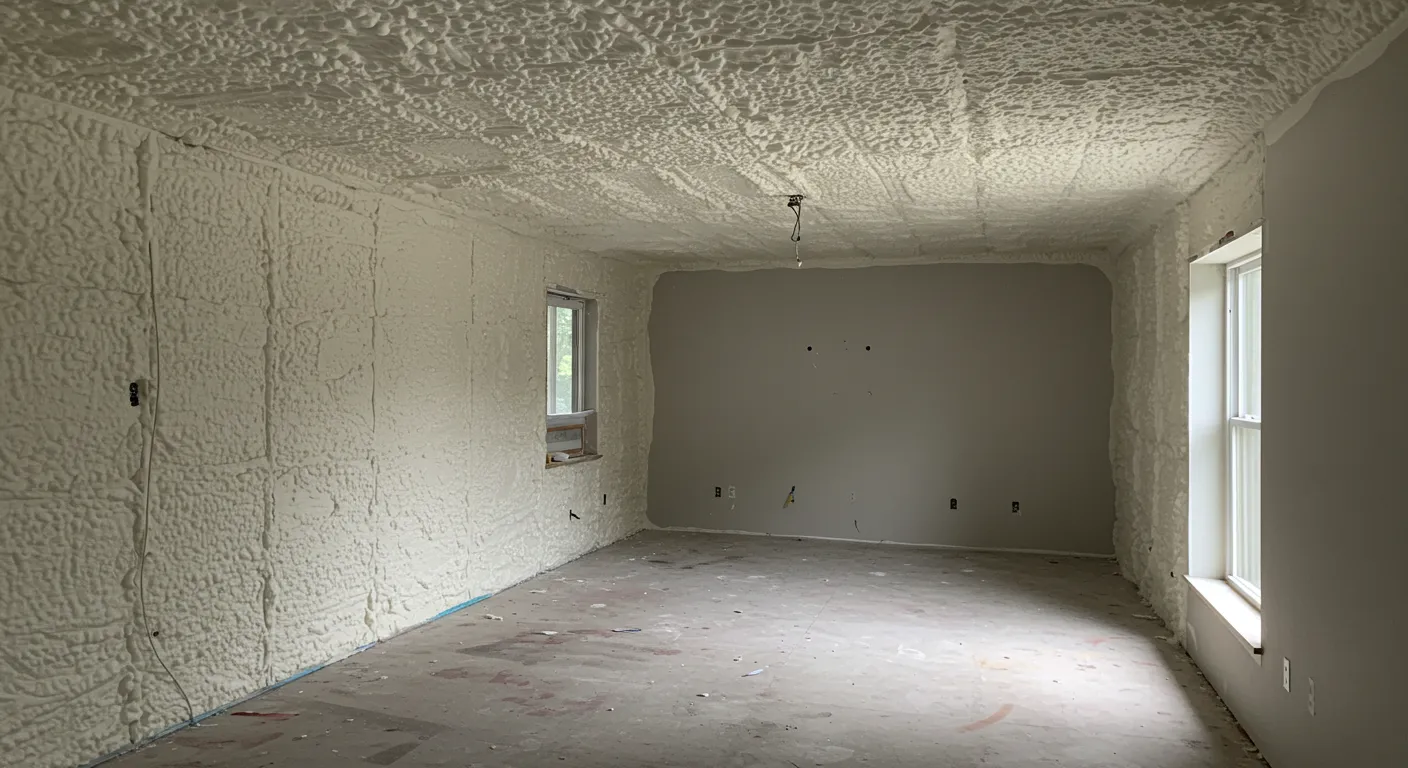You’re getting ready to sell your home, and there’s one big question on your mind:
“Will the spray foam insulation hurt my chances of selling?”
It’s something we hear often from Raleigh-area homeowners. Spray foam is known for its excellent energy savings and comfort, but not everyone understands it—and that’s where concerns can come up during a home sale. Some buyers may worry about ventilation, attic access, or roof longevity. Others may simply not know what spray foam is or what to expect from it.
But here’s the truth: if it’s installed properly and explained clearly, spray foam insulation can actually help your home stand out and sell faster.
Let’s walk through what you need to know.
Why Some Buyers Hesitate When They See Spray Foam
Not every buyer is familiar with spray foam. Some may only know what they’ve read online—often stories filled with confusion, half-truths, or one-off bad experiences. What you’re really dealing with here is a knowledge gap, not a material issue.
The most common concerns include:
- “Will the roof rot because it can’t breathe?”
That’s a misunderstanding. Modern homes often use closed attics with proper ventilation or dehumidification to prevent moisture problems. - “What if we can’t inspect the roof decking later?”
Some inspectors want to see the wood under the insulation. A quick chat with your installer or providing photos can resolve this. - “Will this lower the home’s value?”
On the contrary, many buyers see spray foam as a value booster once they understand the benefits.
The key here isn’t removing the spray foam—it’s explaining it well.
When Spray Foam Becomes a Selling Feature
Let’s flip the script for a second. Instead of viewing spray foam as a problem, what if you highlighted it as a premium upgrade?
Because that’s exactly what it is.
Buyers today want:
- Lower energy bills
- Better indoor comfort
- Energy-efficient upgrades
- Quieter living spaces
Spray foam delivers on all of those fronts. If you’ve got utility bills to prove it, or before-and-after results, even better. That kind of real-world data builds trust fast.
Zillow reported that homes with energy upgrades can sell for up to 5% more.
Over 70% of buyers list energy efficiency as a top priority, according to NAR.
What Could Raise Red Flags—and How to Fix Them
Even great insulation jobs can run into issues if a few key steps are skipped. If your installation lacked proper documentation, ventilation adjustments, or clear disclosures, that’s where things can get tricky.
Common stumbling blocks:
- No paperwork from your insulation company
- Missing ventilation details in a sealed attic or crawl space
- Overlooking disclosure in your listing or seller documents
What you can do right now:
- Find your original invoice or contract
- Ask your installer for product info and install photos
- Share a year’s worth of utility bills if your energy usage dropped
- Let your real estate agent know early so they can help you frame the upgrade correctly
What Real Estate Agents and Inspectors Are Saying
In Raleigh, spray foam insulation is becoming more common—especially in remodels and newer homes. Most agents are comfortable marketing it, and seasoned inspectors know what to look for. The challenge is usually with buyers who haven’t seen it before.
A knowledgeable real estate agent will know how to talk about your insulation and highlight it in your listing.
Pro tip: If you have an encapsulated attic, mention how this keeps the home cooler in summer and helps the HVAC run more efficiently.
Helping Buyers Feel Confident
Your job as the seller is to build trust and help buyers understand what they’re getting. If they see the spray foam but don’t know what it means, you could lose their interest. But with the right approach, it can make your home more appealing.
Here’s how to make it easy:
- Mention spray foam in your listing description
- Show real energy savings with utility bills
- Offer access to your installer or contractor for questions
- Use a home energy audit or inspection to back it up
- Explain why it helps with comfort, soundproofing, and durability
Key Selling Points at a Glance
What Buyers Want | Why It Matters | What You Can Show |
|---|---|---|
| Energy Efficiency | Saves money year-round | Past utility bills |
| Comfortable Living | Fewer drafts and more even temperatures | Room temperature stability |
| Peace of Mind | Trustworthy installation | Warranty, installer contact, product info |
| Healthy Home | Moisture control and air sealing | Crawl space or attic photos |
| Transparency | Builds buyer confidence | Full disclosure in listing + walkthrough |
FAQs: Selling with Spray Foam
Does spray foam lower a home’s value?
Not when it’s installed properly. In fact, it can raise the value by improving energy performance.
Do I need to disclose spray foam insulation?
Yes. Always be upfront. This builds trust and gives buyers time to learn about its benefits.
Can buyers back out if they don’t understand it?
They might—if you don’t explain it. Help them see the positives and provide clear documentation.
Will inspectors flag spray foam during the inspection?
Only if they’re concerned about ventilation or can’t access the attic. Having the right paperwork clears that up.
Should I remove the insulation if I’m worried?
Absolutely not. It’s a strong feature—just be prepared to explain it clearly.
Getting Ready to List Your Home?
Selling a house with spray foam insulation doesn’t have to be complicated. When you know what buyers care about—and you can speak to the value spray foam brings—it becomes a real asset.
The team at Raleigh Excel Spray Foam is happy to review your insulation and help prepare you with the right info before you list. Whether you need records, photos, or expert advice, we’ve got your back.
📞 Call: (919) 301-9435
📧 Email: [email protected]




